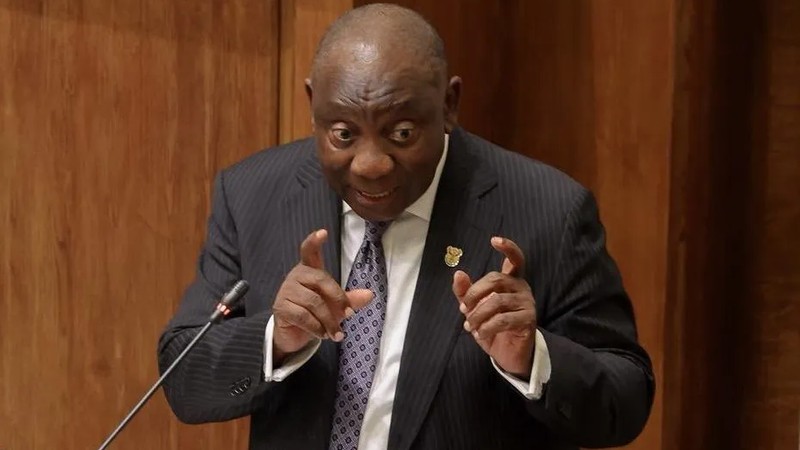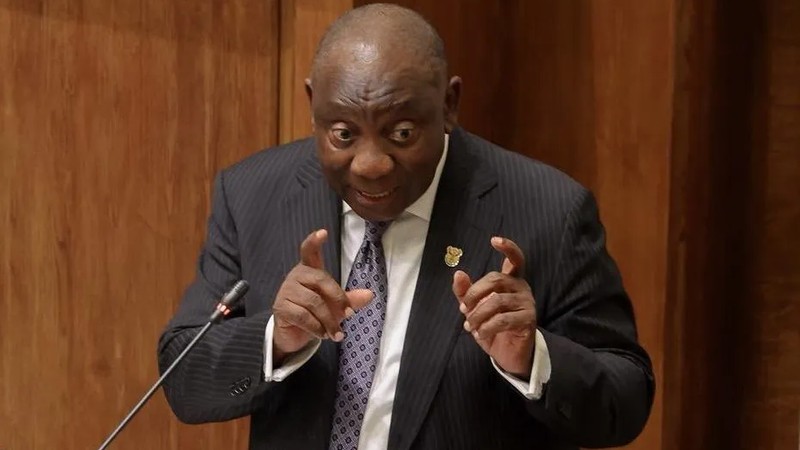
President Cyril Ramaphosa says the City of Cape Town has been the worst-performing between 2011 and 2022 in service delivery areas, including refuse removal, piped water, electricity and flush toilets for its residents.
However, Ramaphosa acknowledged that the metro tends to perform well on measures of financial governance.
He made the remarks during a question-and-answer session in the National Council of Provinces (NCOP) in Parliament, Cape Town, on Tuesday.
Ramaphosa was responding to a question from ANC NCOP member Kenny Mmoiemang, who asked whether the government had developed mechanisms to monitor the state of service delivery and the quality of services offered by government departments, provinces and municipalities.
He also wanted to know if the government had identified the main causes of poor service delivery in many townships and informal settlements across the City of Cape Town metropolitan area, and what plans were in place to expedite basic service delivery there.
Ramaphosa said the government has a comprehensive framework to monitor service delivery and assess the quality of services offered by municipalities.
“The Department of Monitoring and Evaluation monitors government programmes and conducts oversight visits, as do members of Parliament. This is aimed at advancing the goals set out in our medium-term development plan,” he said.
He added that the government has adopted the District Development Model (DDM), which serves as an integrated planning, budgeting and implementation framework.
“This DDM helps ensure that all spheres of government – national, provincial and local – work in a coordinated and coherent manner, and that they also collaborate with other role players in each district,” he said.
Ramaphosa said implementation of plans developed through the DDM is monitored to track progress on service delivery and other developmental outcomes.
“The department monitors and supports municipalities in a number of ways. These include the Inter-Ministerial Committee on the Municipal Performance Turnaround Strategy, which is responsible for strategic interventions in prioritised municipalities to strengthen financial stability and enhance service delivery.”
He said the department leads the implementation of municipal support and improvement plans for distressed municipalities.
These are integrated support measures tailored to address specific service delivery and governance challenges, he said.
Implementation of these plans is monitored and reported on quarterly.
Ramaphosa also highlighted the Metro Trading Services Programme, a reform initiative led by the National Treasury to address infrastructure deficiencies and improve municipal services such as water, electricity, sanitation and waste management.
“This intervention has been widely welcomed by several metros. The National Treasury rigorously monitors municipal financial health through local government revenue and expenditure reports,” he said.
He explained that the system tracks budget credibility, spending on service delivery infrastructure, revenue collection and municipal debt levels.
“The City of Cape Town shares many of the challenges faced by other metros, including rapid urbanisation and population shifts, which increase pressure on services such as housing, water and sanitation,” he said.
Ramaphosa said that the legacy of apartheid spatial planning placed many townships and informal settlements far from economic hubs and service centres.
“While the City of Cape Town tends to perform well on measures of financial governance, it has not demonstrated significant progress in reducing inequality within the metro,” he said.
“Census data shows that between 2011 and 2022, Cape Town performed worse than the average of all metros in expanding access to services such as refuse removal, piped water, electricity and flush toilets.”
The City of Cape Town is led by the Democratic Alliance (DA).
He said analysis of the city’s budget suggests that per capita investment in infrastructure and service delivery remains significantly lower in townships and informal settlements than in more affluent areas.
“In the spirit of cooperative governance, the national government works with municipalities across the country, including the City of Cape Town, to address these and other challenges,” Ramaphosa said.
He added that assistance includes conditional grants for infrastructure and capacity building, technical support programmes, and training for municipal officials.
“The national government is committed to working with provincial governments and municipalities to ensure all citizens enjoy equal access to quality services. This is an area we are focusing on as we lead reforms at the municipal level to address the challenges our municipalities face,” he said.
Last month, Ramaphosa, speaking as ANC president, admitted it pains him that DA-led municipalities often outperform ANC ones in service delivery, urging his party’s councillors to improve.
Speaking at the ANC’s councillor roll call event at FNB Stadium in Soweto, Ramaphosa encouraged members to learn from better-performing municipalities, specifically naming DA-run cities.
He said the Auditor-General had informed him that many ANC-led councils fail to prepare their own financial statements and rely on external assistance.
He urged the ANC to deploy qualified individuals, particularly those with accounting and financial skills.
Political analysts said Ramaphosa’s admission reflected a truth he had long wanted to express.
However, he later clarified that his remarks praising DA-run municipalities were based on Auditor-General reports highlighting solid financial management in the Western Cape.
Politics
